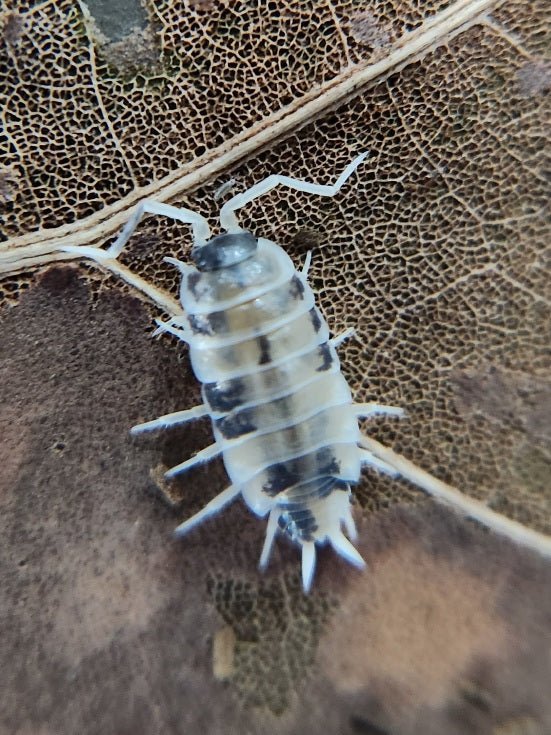Look no further if you are in search of springtail info from an experienced trusted source. We have been keeping springtails since 2010, and really started breeding them and experimenting with them since 2012. We have numerous different species of springtails available that from our experience thrive in bioactive terrariums.
Some springtails cannot tolerate arid conditions at all, and some are well-rounded and can tolerate a wide range of conditions. We keep all of our springtails on a combination of peat moss and organic soil, and we feed most species a small pinch of active dry baking yeast every two to three days (with the exception of the orange and red springtail species which get pinch of fish food flakes). Feeding yeast greatly cuts down on the chances of encouraging mites. A specific "springtail food" is not necessary.
We have experimented with many types of substrates and clay and charcoal over the years. The peat moss and organic soil works best for us. It can easily be added directly to your bioactive substrate, or if you want to use some of the springtails intermittently as a supplemental feeder, you can place a piece of charcoal, bark, a small seed pod, or a leaf on top of the springtail culture and the springtails will congregate on the bark, leaf, seed pod, or charcoal, and you can tap or blow off the springtails into where you need them. If you'd prefer to start a clay culture, use the same strategy just described to transfer the springtails to the clay culture cup. Keep in mind that not all springtails do well on charcoal or clay.
We highly recommend having a diverse population of springtails in your bioactive enclosure. We offer both semi-arid and humid mixed springtail cultures, which contain several species of appropriate springtails.
Humid/Tropical Springtails - Folsomia Candida, Entomobrya confusa Compost Varicolor, Coecobrya communis "Sinella Tropical Pink", Pseudosinella alba Prospectors, Pseudosinella rolfsi Rutabaga Runners, Pseudosinella violenta Bylas Ant, Priostoma minuta, Yuukianura aphoruroides Orange, Neanura growae Florida Orange, Lobella Sp. Thai Red, Ceratophysella Sp. Yellow, Ceratophysella Sp. Lilac, Arrhhopalites caecus Globular Cave.
Semi-Arid Springtails - Coecobrya communis Sinella Tropical Pink, Seira dowlingi Silver, Entomobrya unostrigata Cotton Springtails, Pseudosinella violenta Bylas Ant, Lepidocyrtus fimicolus 24K.



